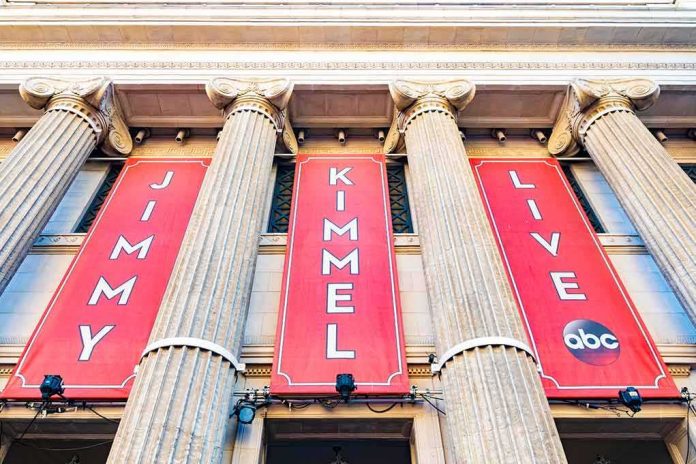
One moment can end a career, another can be forgiven—if you’re on the right side of media politics.
Story Snapshot
- Megyn Kelly reignites debate on cancel culture’s double standards by contrasting her firing to Jimmy Kimmel’s survival after blackface sketches.
- Kimmel performed blackface in multiple early-2000s comedy skits, apologized, and retained his show; Kelly was fired after a controversial Halloween discussion.
- The entertainment industry’s responses fuel claims of political bias, with left-leaning figures often treated more leniently.
- Networks and social media shape outcomes, amplifying public outrage and influencing advertiser decisions.
Media Accountability Through the Lens of Cancel Culture
The media’s response to controversy is increasingly shaped by political leanings and public pressure. Jimmy Kimmel’s blackface sketches aired in the early 2000s, a time when racial insensitivity in comedy was often overlooked, especially for entertainers with mainstream appeal. Years later, these acts resurfaced during a period of heightened racial awareness. Kimmel issued a public apology, acknowledging the pain his performances caused but remained on air, a move that critics argue demonstrates leniency for progressive figures.
Megyn Kelly’s experience offers a stark contrast. In 2018, Kelly questioned on her NBC show why blackface Halloween costumes are universally considered offensive, sparking immediate backlash. Despite an on-air apology the following day, NBC swiftly canceled her show. Kelly claims her firing was a result of political bias, asserting that the entertainment industry enforces its standards selectively, often punishing conservative voices more severely.
Public Sensitivity and Shifting Standards
Blackface has a deeply racist history in America, originating from 19th-century minstrel shows that perpetuated harmful stereotypes. While public tolerance for such acts has dwindled, the consequences for performers vary widely. Kimmel’s sketches, produced when blackface was still a “shock value” staple, were tolerated at the time. By 2020, when social justice movements surged, the same content met renewed outrage—yet Kimmel’s apology sufficed for his network.
Kelly’s firing occurred during a cultural reckoning on race, but her offense was not an act, rather a question. This distinction is not lost on critics who argue that intent should matter when considering consequences. Other celebrities, such as Sarah Silverman, have faced scrutiny for similar acts but were not permanently “canceled.” The uneven application of punishment continues to fuel public debate.
Networks, Social Media, and Political Divide
The decision-making power of networks like NBC and ABC is increasingly influenced by the rapid feedback loop of social media. When controversy erupts, advertisers and executives must weigh public outrage against the star power and audience draw of their talent. In Kelly’s case, network executives moved quickly to contain damage, perhaps fearing advertiser boycotts and social media backlash.
Kimmel’s situation unfolded differently. Despite intense online criticism, ABC retained him, citing his apology and previous philanthropic work. Social media amplified both support and condemnation, but the network appeared confident that Kimmel’s audience would remain loyal. This disparity in outcomes has become a rallying point for Kelly and others who see political bias in cancel culture enforcement.
Ongoing Controversy and Industry Impact
Megyn Kelly continues to use her podcast and social channels to highlight what she sees as hypocrisy in how media figures are held accountable. Her latest criticisms coincided with Kimmel’s on-air return after another controversy involving political remarks. ABC affiliates reportedly reconsidered airing his show due to the persistent backlash, though Kimmel remains a fixture in late-night television.
The broader entertainment industry faces mounting pressure to enforce standards consistently, regardless of political affiliation. While apologies and demonstrated change can mitigate consequences for some, others are permanently sidelined. The debate is far from resolved, as stakeholders—networks, advertisers, viewers, and commentators—continue to wrestle with the complexities of fairness, accountability, and forgiveness.












